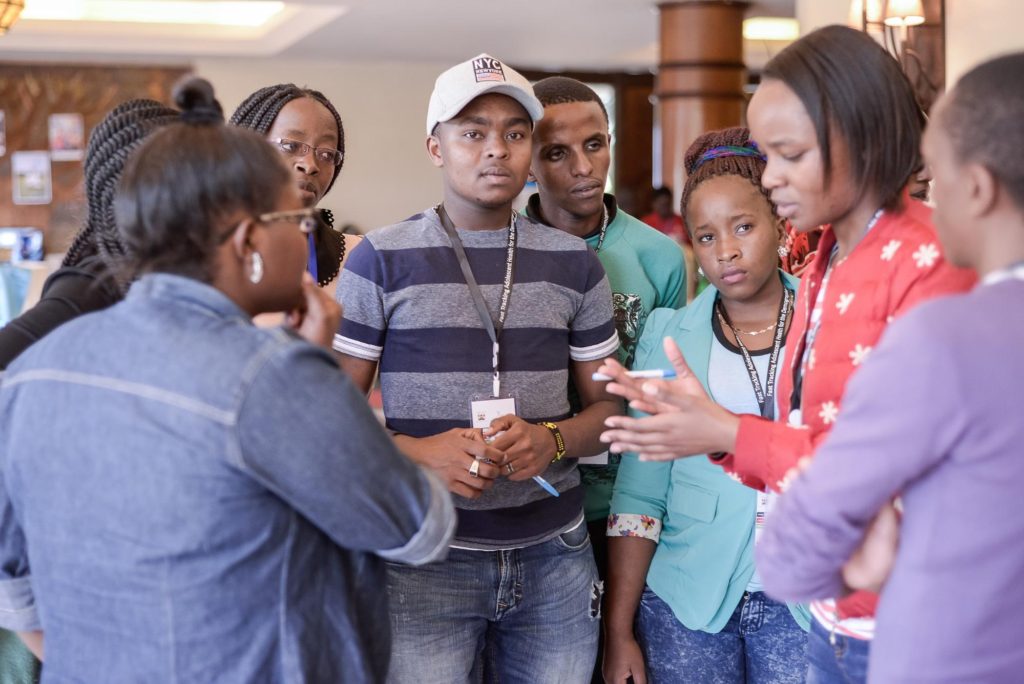
By Caroline Kabiru, Research Scientist, APHRC via GEAS Newsletter While adolescence is a much-studied period of life, we know relatively little […]
Read More…
Introduction Delaying sexual debut has proven life time benefits. On the contrary, early sexual intercourse has been positively associated with […]
Read More…
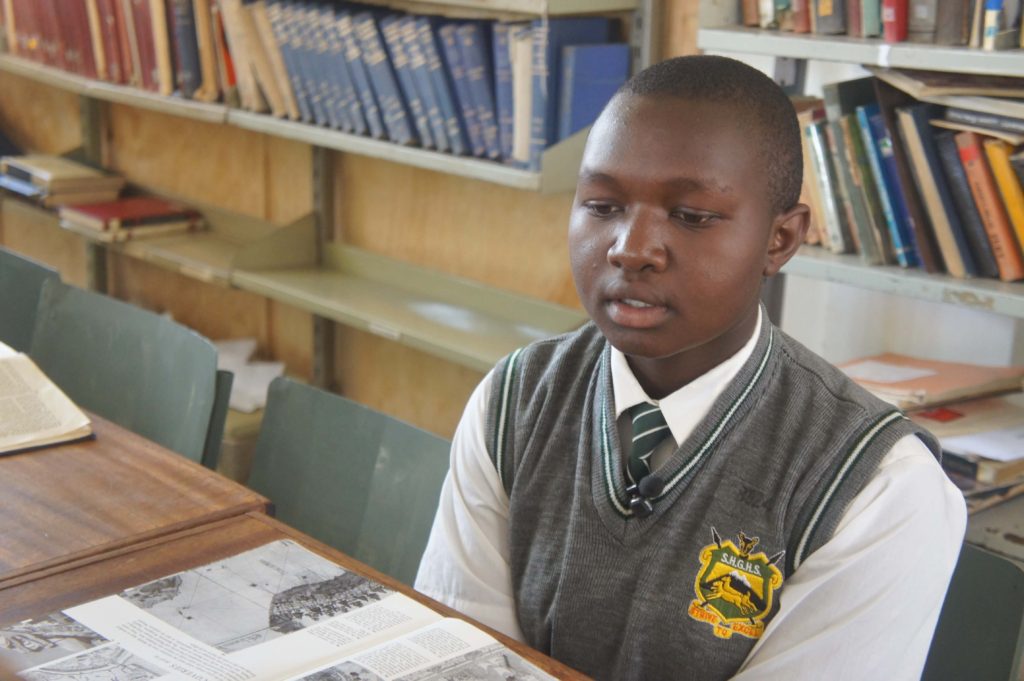
When Riziki was just 13, a door was opened to her. Born and raised in the Viwandani slum in the […]
Read More…
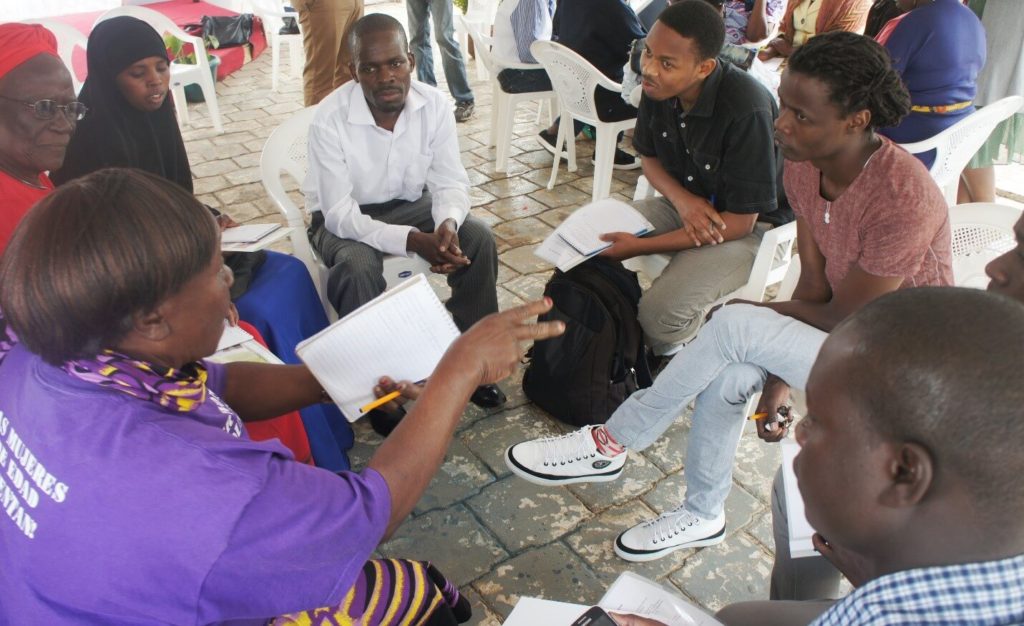
APHRC brings the young and old together in Nairobi to discuss inter-generational issues Bringing together youth aged between 20 and […]
Read More…

The Education Research Program at APHRC in collaboration with the Iganga Mayuge Demographic and Health Surveillance System (IMHDSS) in Uganda […]
Read More…
Many adolescent girls in Kenya face considerable risks and vulnerabilities that affect their education status, health, and general well-being. The Adolescent Girls Initiative–Kenya (AGI-K) will deliver multi-sectoral interventions for over 5,000 girls ages 11–14 in two marginalized areas of Kenya: 1) Kibera slums in Nairobi and 2) Wajir County in Northeastern Kenya. Implemented by Plan International in Kibera and Save the Children in Wajir, these interventions will be implemented for two years and will comprise a combination of girl-level, household-level, and community-level interventions. A randomized controlled trial (RCT) will be used to compare the impact of four different packages of interventions, together with their costs, in order to assess if and how intervening in early adolescence will impact girls’ life chances. This report describes the intervention and research design of AGI-K as well as the findings from the baseline survey. […]
Read More…
There is a new brand of educational entrepreneur emerging in Nairobi’s slums: privately owned and run schools that promise particularly […]
Read More…
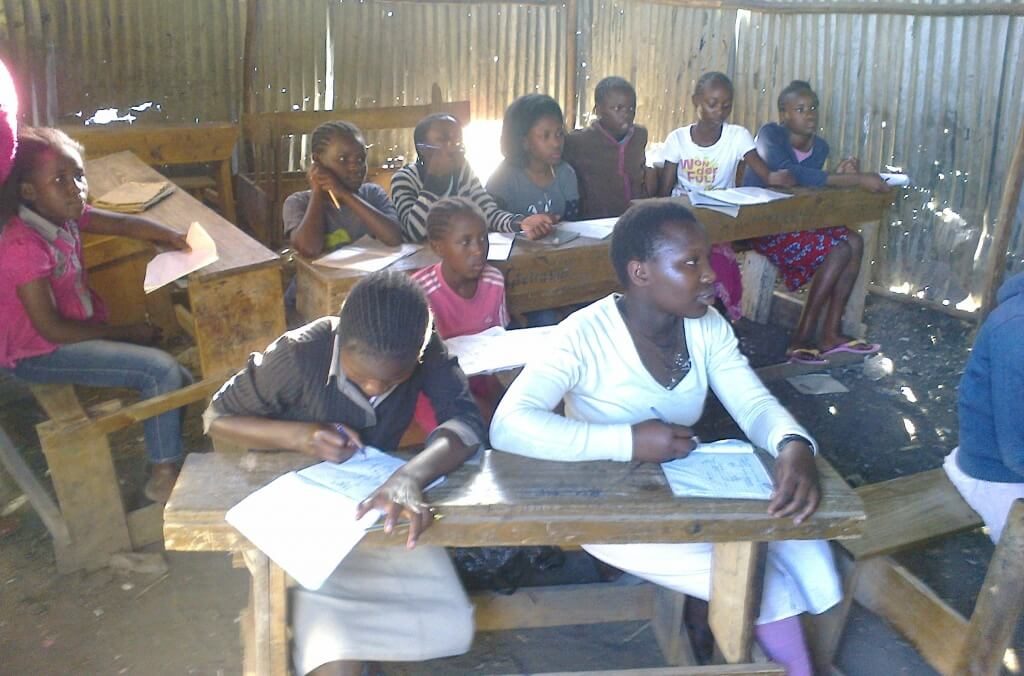
I recently met my longtime friend Kidizz, after quite a long time. I first met him back in 2004, when I […]
Read More…
By Namuunda Mutombo, Associate Research Scientist, APHRC Half of Mozambique’s population which is aged below 25 years, is characterized by […]
Read More…

By Shem Mambe, Field Supervisor, APHRC Isn’t it a village feat to see girls thrive in academics and society? More […]
Read More…
Little is known about patterns of secondary schooling among the urban poor. The data related to secondary school transition is not disaggregate by gender or by school type. APHRC collected data on an intervention study to understand transition to secondary school among the urban poor girls. The aim of the intervention study is to identify effective interventions for improving learning outcomes and transition to secondary for urban girls living in Korogocho and Viwandani which are the two urban slums in Nairobi. […]
Read More…
The overall goal of this study was to improve learning outcomes and transition to secondary school through community participation and after-school support among disadvantaged girls in urban informal settlements of Nairobi. The three-year improving learning outcomes and transition to secondary school study began in 2013 and is set to end in 2015. The study is being implemented in two informal urban settlements of Nairobi, Kenya called Korogocho and Viwandani, by two CBOs: Miss Koch and U-Tena respectively. The evaluation was conducted by APHRC. The baseline survey was conducted in June 2013, and the intervention started in July of the same year. A mid-term evaluation survey was conducted in May and June 2014, and the end-term in June and July 2015. The expected outcomes of the study were: improved learning outcomes and transition to secondary schools for girls in grades six, seven and eight from poor households. The end-term evaluation was conducted with the aim of establishing the impact of the study after three years of implementation. […]
Read More…
From a recent study by APHRC and the Iganga Mayuge Health and Demographic Surveillance System (Uganda) public schools were found […]
Read More…
By Caroline Kabiru, Research Scientist, APHRC via Research Watch Adolescence is a period marked by rapid physical, emotional and social […]
Read More…

Dr. Elizabeth Kimani-Murage “Publish or perish” is a commonly used phrase in the academic circles, though it originated from non-academic […]
Read More…
APHRC’s Acting Executive Director and Director of Research, Catherine Kyobutungi tells us about her life, work and passion for people. […]
Read More…
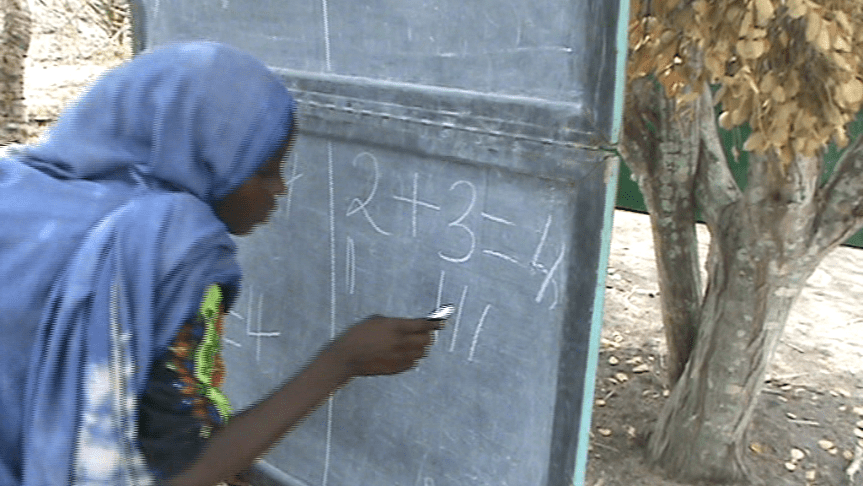
Did you know that teacher Potpal is back to teaching?! Just to remind you who he is, teacher Potpal is […]
Read More…
Parents in Kenya have been in a dilemma since the release of the Kenya Certificate of Primary Education (KCPE) results […]
Read More…
The main objective of this paper was to investigate the optimal age category at which primary school pupils from low income families perform their best in literacy at grade 6 level. Age is a potential learning barrier because of its link to cognitive development as well as its influence on interactions between pupils within classrooms. The sample consisted of 7041 grade 6 pupils, spread in 226 schools across six major urban slums in Kenya.
Using descriptive statistics, the researchers examined the distribution of grade 6 pupils’ age. They then examined incidences of over-age pupils and incidences of grade repetition across various subgroups of pupils disaggregated by factors such as sex, wealth background, grade repetition, school type and geographical location. Finally, using multilevel techniques, they estimated the pupil age category that has greatest positive impact on literacy achievement at grade 6 after controlling selected pupil and school factors. […]
Read More…
Research shows that providing girls with after-school support and mentoring in addition to such incentives as stipends helps them to stay in school and transition into secondary school. This pilot study in informal settlements in Nairobi, Kenya tested several strategies to support girls’ education. The first approach provided after-school mentoring/homework support in the core subjects of literacy and numeracy to girls from the same environment who had attained a grade of C+ or above, the minimum required for university entry.
The second intervention targeted parents, community leaders, and gatekeepers to support schooling for girls aged 12-19 who are at risk of not completing primary school and consequently not transitioning to secondary school. The third intervention provides conditional financial support to girls from poor households who obtain a mean score of 250 or above on the Kenya Certificate of Primary Education (KCPE) at the end of the primary school cycle. […]
Read More…
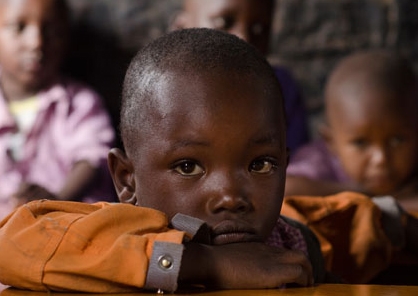
That one day, our children will come to love Math and Reading! Part I Think of a school system without […]
Read More…
The overall goal of this study is to improve learning outcomes and transition to secondary school through community participation and after-school support among disadvantaged girls in urban informal settlements of Nairobi. The improving learning outcomes and transition to secondary school study is a three-year intervention study which started in 2013 and ends in 2015. The study is being implemented in two informal urban settlement of Nairobi, Kenya called Korogocho and Viwandani, by CSOs/NGOs Miss Korogocho and U-Tena respectively. The evaluation is being conducted by APHRC. The baseline survey was conducted in June 2013, and the intervention started in July of the same year. This is to be achieved through increasing access and transition to quality secondary education among girls living in the urban informal settlements, and through parental and community support. The expected outcomes of the study are increased attendance, improved learning outcomes, and transition to secondary schools for girls in grades 6, seven and eight from poor households.
Between the baseline and midterm evaluations, girls in grades seven and eight were exposed to 12 months of after-school support and mentoring, while their parents were exposed to guidance and counseling over the same period. The midterm evaluation was conducted with the aim of enumerating the short term outcomes of the study during the year, specifically, the progress of the intervention, and achievements. The results of the midterm evaluation will inform the processes of the intervention in the third year of implementation. The midterm evaluation study sought to answer the following questions: 1) does the after-school learning support and mentoring lead to improved learning outcomes; 2) does the promise of subsidizing the cost of secondary first grade entry increase the transition of girls to secondary schools; and 3) how does increased awareness about the challenges of girl’s education in the community by parents and community leaders lead to increased support for and improved learning outcomes among girls. […]
Read More…
The introduction Adolescence in girls has been recognized as a special period which signifies the transition from girlhood to womanhood. […]
Read More…
In developing countries, school enrollment has increased tremendously over the past 10 years. For instance, between 2003 and 2008, primary school enrollment rates in sub-Saharan Africa increased by 18% with a number of countries recording gross enrollment rates above 100%. Despite these gains, learning outcomes have been declining raising fears that children are simply going through the school system with minimal learning. […]
Read More…

Understanding the uptake and patterns of school enrollment after the introduction of the Free Primary Education (FPE) in Kenya. Highlights […]
Read More…